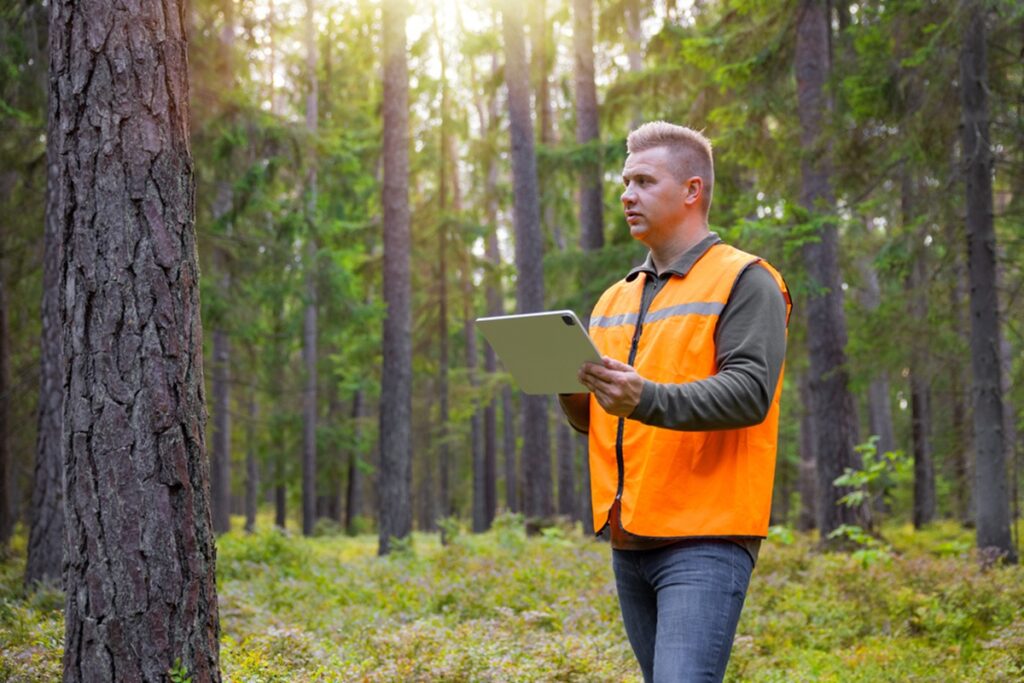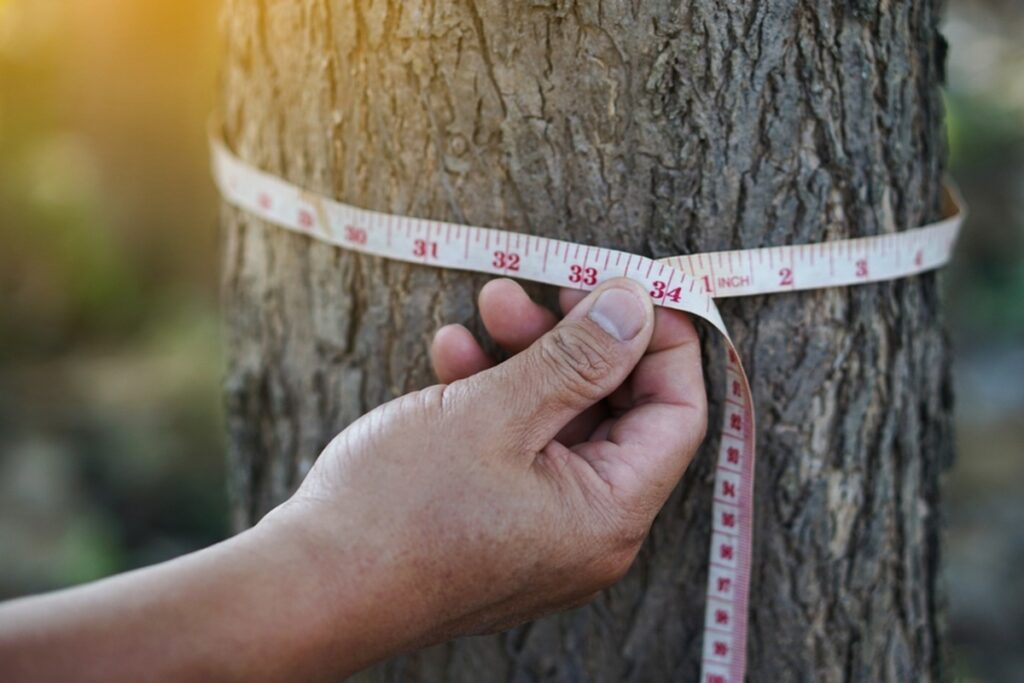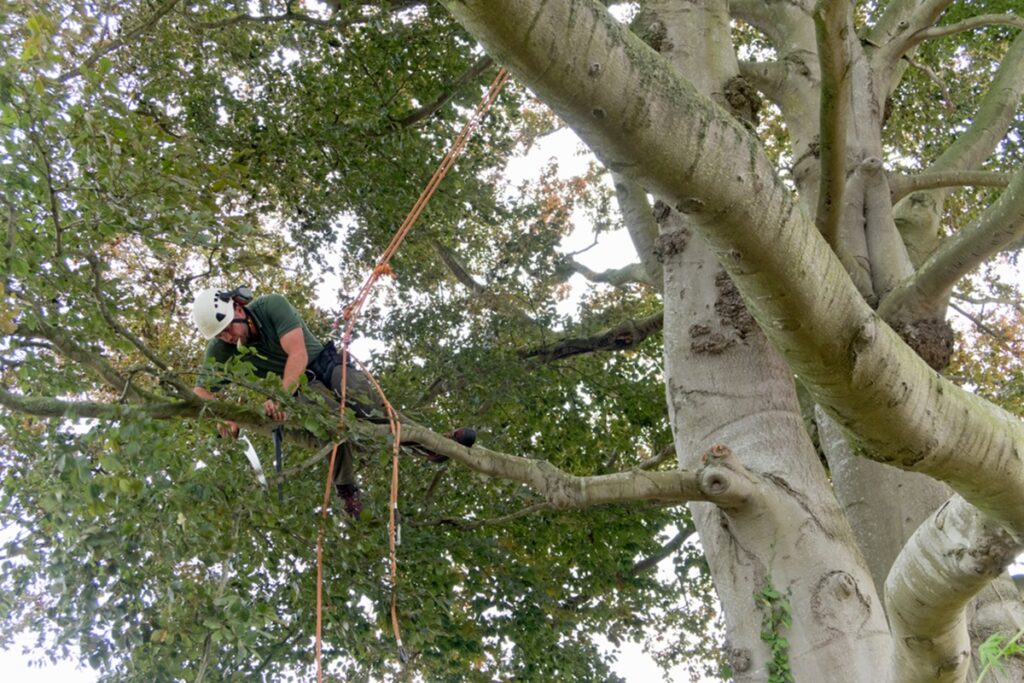Tree Reports play a Key Role in Sheffield’s Development Policy
With one third of the city lying within the Peak District National Park, Sheffield is often referred to as the `Outdoor City’. It contains more trees per person than any other city in Europe, making it one of the UK’s most ecologically rich urban centres.
Sheffield is known for its unique blend of urban development and green landscapes. As regeneration continues across key areas of the city, from Kelham Island to the city centre and the Upper Don Valley, the integration of green infrastructure into development plans is increasingly vital. This means that tree surveys in Sheffield are not just a planning requirement, but a critical part of safeguarding the city’s natural heritage.
Sheffield’s Natural Assets
With ancient woodlands in Ecclesall Woods and Endcliffe Park, and mature street trees lining roads in Nether Edge, Walkley and Broomhill, Sheffield has a long-standing relationship with trees that shapes both its landscape and its identity. The city’s other natural assets include seven rivers, numerous parks, and access to the Peak District which all contribute to a varied and ecologically diverse urban environment. Tree surveys in Sheffield ensure that as the city grows, its treescape is protected and enhanced, supporting biodiversity, improving air quality and helping to manage the effects of climate change. Sheffield City Council has made a strong commitment to climate action and ecological protection, embedding the importance of trees into local planning policies and environmental strategy.
The City’s Plans for Tree Protection
Sheffield, like many other UK cities, enforces legal protections for certain trees through Tree Preservation Orders (TPOs) and designated Conservation Areas. These protections are common in areas such as Ranmoor, Nether Edge and the city’s historic core, where mature and veteran trees contribute significantly to the character and amenity of the area. Carrying out works such as felling, lopping or even root disturbance on protected trees without proper consent from Sheffield City Council is illegal and can lead to prosecution.
For developers, estate managers or property owners, this means that planning permission is unlikely to be granted for sites involving trees unless a comprehensive tree survey has been submitted. Tree surveys in Sheffield help the council understand which trees are present, tree health, and how development might affect them. By identifying potential constraints early, tree surveys help to inform site design and ensure compliance with planning policy. In many cases, full tree surveys in rural and urban areas are not only necessary for approval but can also help avoid costly delays or redesigns further down the line.

The BS5837 Tree Survey Sheffield
The British Standard BS5837 tree survey is the standard approach required for development-related projects involving trees. This survey follows the British Standard guidance for trees in relation to design, demolition and construction. It must be carried out by qualified tree consultants and is typically submitted alongside planning applications for a development project where trees are present on or near the site.
The BS5837 tree survey process involves a detailed site inspection where all relevant trees are assessed and recorded. This includes documenting tree species, height, stem diameter, age class, tree health, structural condition and life expectancy. Each tree is given a retention category based on its value – from high-quality specimens worth preserving to those with limited merit or structural issues that may justify removal. Root Protection Areas (RPAs)are calculated to determine where construction should be avoided to prevent damage. The results of the survey inform site layout and help planners and developers work together to achieve a balance between construction and conservation.
Tree Risk Assessment
One of the key outcomes of a BS5837 tree survey is the formulation of tree protection measures. These are designed to safeguard retained trees throughout demolition and construction phases. Measures may include protective fencing, no-dig zones, and access restrictions to prevent root compaction. Where tree loss is unavoidable, the survey will propose mitigation such as replacement planting, translocation of young trees, or biodiversity enhancements elsewhere on the site. All of this is outlined in an arboricultural report which forms part of the planning submission. This ensures that tree-related impacts are clearly assessed, justified, and managed in accordance with Sheffield City Council’s planning requirements.

Tree Reports clarify the Next Steps in the Planning Process
Once survey data is collected, it is compiled into a tree report that meets the expectations of Sheffield’s planning team. The written report usually includes a Tree Constraints Plan, which shows tree positions, canopies, and RPAs overlaid with the proposed site layout. Additional documents, such as an Arboricultural Impact Assessment, Arboricultural Method Statement, and Tree Protection Plan, may be necessary depending on the scale or sensitivity of the development. The report may recommend that tree surgery is carried out to remove branches or entire trees. Reports outline how construction will proceed while protecting valuable tree assets, and are often essential for sites located within Conservation Areas or involving trees under TPO protection.

Further Surveys for Rural and Urban Areas
While tree surveys in Sheffield are often associated with planning applications, they also serve wider purposes. Public bodies, housing providers, schools, estate managers and commercial landowners commission tree surveys to meet their duty of care and to manage risks. Tree surveys may be requested by mortgage lenders or insurers and they can help inform a woodland strategy. Proactive tree inspections can identify structural weaknesses, decay, or disease before they lead to damage or injury. Given Sheffield’s complex topography and high levels of rainfall, managing tree stability is particularly important. Tree risk assessments and general condition surveys help maintain safety, preserve valuable assets such as listed buildings, and support long-term land stewardship.
Expert Tree Surveys: Engage a specialist Arboricultural Consultancy
If you are planning a development in Sheffield, managing areas that accommodate trees, or seeking advice about tree safety and planning compliance, our consultancy can help. We provide professional tree surveys in Sheffield and across the wider South Yorkshire region. Our arboricultural consultants are qualified, experienced, and fully up to date with BS5837 guidance and local planning authority requirements. We work closely with clients to deliver practical, clear, and policy-compliant reports that support successful planning outcomes while safeguarding Sheffield’s treescape.
Request a Free Quote for a Sheffield Tree Survey
Whether you’re submitting a planning application, managing land, or responding to tree health issues on your site, we offer responsive and expert tree services. Get in touch today via our contact form to request a free quote for a tree survey Sheffield. Our team can arrange a site visit at a time that works for you and provide the specialist advice needed to help you make informed decisions about the best course of action.